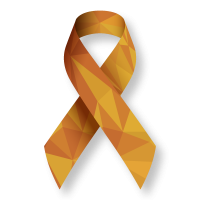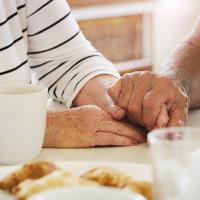Travelling with cancer may feel daunting, but it is often possible with careful planning and forward thinking. Whether you or a loved one with cancer are thinking of travelling for treatment, to see friends and family, or just to get away for a while, we’ve put together a few practical travel tips to help you get started.
Protect your health when travelling with cancer
Can I travel with cancer?
Travel can provide a welcome distraction and lift your spirits, and with good forward planning, many people can travel safely with cancer.
But each person is different. It is always a good idea to take a moment to think about how you feel about travelling, and to talk with your doctor about your plans.
Your doctor can help you to consider important points about your current health and think about a travel plan that works best for you.
When is travel with cancer not recommended?
If you are at certain points in your treatment cycle, or you have some specific health concerns, your doctor may sometimes recommend that you modify your plans. This is because there are some situations that could make some forms of travelling unsafe for you:
- If there is a risk of flying: Your doctor may sometimes recommend that you delay taking a flight - if you have very recently had some types of surgery for example, or if you have low levels of oxygen in your blood. This is because there is a risk that changes in oxygen levels and cabin pressure might impact your health and recovery during this time1.
- Very low immunity: Some cancer treatments like bone marrow and stem cell transplants can also severely impact your immune system, and your doctor may recommend that you pause travel plans until your immune health has recovered1.
- Keeping important appointments: It can also be a good idea schedule travel around important monitoring appointments or check-ups, particularly if you are early in your treatment or recovery.
Protect your health when travelling with cancer
If you or a loved one has cancer, you may need to take certain measures to protect your health as you travel. Here are some common health considerations that you may want to discuss with your doctor:
Risk of infection
Long-term illness and some types of cancer treatment like chemotherapy and immunotherapy can impact your immune system and increase your infection risk2. That risk could be heightened if you need to spend time in busy or enclosed areas such as airports, and airplanes.
You may want to take extra precautions to protect yourself from infection as you travel. You can help to reduce your risk by making sure you are up to date with all your vaccinations, including for COVID. Regularly washing your hands can also help to stop you picking up any germs as you are on the move.
You may also want to consider wearing a mask when you are in confined spaces, such as in the airplane cabin. It is worth noting that some types of masks can help to protect you from airborne germs more than others. Your doctor can help to advise you on this, and on the best way to manage your personal risk.
Chance of blood clots
Recent surgery and some cancers and treatments can sometimes increase your risk of developing deep vein thrombosis (blood clots)3,4. In some cases, you may be advised not to fly, or to avoid spending long periods of time sitting still as you travel. This is because these activities can further increase the likelihood of blood clots. Your doctor can provide you with detailed advice on the best ways to minimize any risk you might have.
Sun sensitivity
Some cancer treatments, including chemotherapy and radiotherapy can make your skin extra sensitive to the sun for a time5. You may need to be more vigilant about sun protection than you usually are. Try to stay out of strong sunlight and use high-factor sunscreen (at least SPF 30 or above). Pack a wide-brimmed hat and protective clothing for extra protection.
Low energy levels
Fatigue (long-term tiredness) is a common side-effect for many cancer treatments and is also a normal part of living with cancer. Travelling can add to feelings of fatigue, and it is worth considering your needs before you travel. Would extending your travel time to incorporate rest periods be useful to you? Or hiring specialized equipment such as wheelchairs for your time away?
Listen to your body and try to stay flexible. Be prepared to change daily plans, depending on your energy levels. Also consider where and how you can ask others for help- perhaps with the packing, moving luggage, or ensuring you have access to any facilities you might need during your stay.

Plan for your trip
With a little preparation, you can make sure you have a great trip. Whether you are planning a relaxing break, or are travelling to receive treatment, here are a few tips to consider before you begin to pack:
Consider whether you need approval from your doctor to travel
Some situations may need you to obtain a written note from your doctor confirming that you are fit to travel. For example, some travel and insurance companies require written permission from your doctor before covering you.
If you have a radioactive implant as part of your radiotherapy treatment, you may also need a verification card from your doctor to help you pass airport security. This is because radioactive implants can sometimes set off airport scanners.
It can also be useful to consider obtaining a doctor's note explaining that your medications and medical supplies are necessary. This will help you to avoid any potential problems taking them on a plane, or in other public places.
Think about the facilities that you could need as you travel
Consider your route, mode of transport, and destination, what are you likely to need along the way? Will you need frequent rest breaks, or any special food requirements? Is it easy to incorporate these needs into your travel plans, or are alternative plans needed?
It might be worth directly contacting your travel providers and the places where you will be staying to ensure they can accommodate your needs.
For example, it is often worth booking your plane tickets well in advance so you can choose a seat with extra legroom or next to the aisle to make bathroom trips easier. Pick a seat at the front of the plane so you can de-board first.
Make an action plan
It can be reassuring to know that you have a plan if you do need extra medical help while you are away.
Put together an information pack containing contact details for anyone you might need in an emergency. This could include friends and family, your medical team back home, and your insurance provider details. Note down details of any medical centers or specialists near to where you are staying in case you need extra medical support or supplies.
Also take copies of recent medical records, a medication list, and a cancer diagnosis and treatment summary with you. Many smartphones and designated apps can now help you to easily store and share this sort of medical information.
Check your travel insurance
If possible, it is always worth getting travel insurance as soon as you have booked your travel plans. However, finding travel insurance can unfortunately sometimes be a challenge for people with cancer.
Some companies will cover travel for patients with cancer under special conditions, for example if the patient is medically stable, or if you have a note from a doctor saying you are fit to travel. Other companies may insure you to travel, but won’t cover any cancer-related expenses.
There are also specialist agencies who work with people with pre-existing conditions who may be able to give you cover. It is worth being open and honest with your insurance provider to see what they can offer, and shop around to find something that suits you.
Take more medications and medical supplies than you need
Plan for any medications you will need to take, and also any medical supplies you will need for your personal care, such as stoma or catheter-related supplies. It is important to make sure you have enough of these supplies with you, and it is always worth taking more than you need to last the trip. The extra can cover you in case some are lost or damaged, or your travel is delayed.
For any essential supplies that are hard to get hold of, you might want to keep them extra safe by taking them in your personal possessions as you travel.
Look for resources if you are travelling for cancer treatment or testing
If you are travelling to receive treatment or tests away from home, you may be able to access resources that are available to help you with costs, logistics, and emotional support.
Start by asking your hospital or insurance provider to connect you with a nurse navigator or similar professional who can help you plan your trip and access financial and support resources.
Think about how you can make your trip fun
Living with cancer can sometimes feel overwhelming, and it might feel like a huge task even just to think about all the planning required to get away. Remember that you are more than your cancer, and you deserve to find and do things that bring you joy.
Just as it is a good idea to plan for unexpected changes, it’s also useful to think about how you can make your journey enjoyable too. If you are going on vacation, then this trip is for you, so find ways to give yourself what you need.
Quick travel checklist
- Do you feel able to travel?
- Have you discussed your plans with your healthcare team?
- Have you got the required documents from your doctor showing that you can travel?
- Fitness to travel
- Treatment documentation (i.e., radiotherapy implants, medicines)
- Do you need to take any extra measures to protect your health as you travel? (i.e., manage infection risk, fatigue, sun protection)
- Have you thought through each stage of your trip, to make sure you will have the support and facilities that you need?
- Will you need extra help from a companion or other people as you travel?
- Have you thought of an action plan if you have any significant changes to your health while you are away?
- Have you gathered any medical documentation and information you might need?
- Medical notes, scans, treatment plans
- Contact details of medical team, other emergency contacts
- Do you have all your travel insurance details with you?
- Have you packed enough (plus extra) medication and specialist medical supplies to cover your trip?
- Have you thought about how you can make your trip relaxing, enjoyable, and fun?
Travelling with cancer
With the right planning, travelling with cancer can be manageable- providing you with some much needed time to rest, and create special memories. Remember to consult with your health care provider before traveling and think about any special requirements that you might need every step of the way. Most importantly, be kind to yourself and take the time you need to rest and recover.
Browse our blog for more patient and caregiver articles
Managing cancer requires resilience and help from others. If you’re looking for information or tips on managing bladder cancer, our blog has a range of resources designed to help both patients and caregivers. Browse the Cxbladder blog.
Cxbladder Monitor is a non-invasive genomic urine tests optimized for the surveillance of non muscle-invasive bladder cancer. As a non-invasive surveillance alternative, Cxbladder Monitor can reduce the burden of cystoscopy in those being monitored for recurrent disease.
Learn more
Further resources
- Cancer.Net - Traveling With Cancer: 5 Steps to Take Before You Start Packing. https://www.cancer.net/blog/2017-08/traveling-with-cancer-5-steps-take-you-start-packing
- Cancer Research UK - Travelling with cancer. https://www.cancerresearchuk.org/about-cancer/coping/practically/travelling-with-cancer
- Macmillan Cancer Support - Travel. https://www.macmillan.org.uk/cancer-information-and-support/impacts-of-cancer/travel
References:
- Cancer Research UK. Accessed August 22, 2023. https://www.cancerresearchuk.org/about-cancer/coping/practically/travelling-with-cancer/when-not-to-travel
- Information for Patients and Caregivers. Published 2019. Accessed May 23, 2023. https://www.cdc.gov/cancer/preventinfections/patients.htm
- Blood Clots. Medlineplus.gov. Published 2019. Accessed May 23, 2023. https://medlineplus.gov/bloodclots.html
- Macmillan Cancer Support. Accessed August 22, 2023. https://www.macmillan.org.uk/cancer-information-and-support/impacts-of-cancer/travel
- Health C for D and R. N95 Respirators, Surgical Masks, Face Masks, and Barrier Face Coverings. FDA. Published online September 15, 2021. Accessed May 23, 2023. https://www.fda.gov/medical-devices/personal-protective-equipment-infection-control/n95-respirators-surgical-masks-face-masks-and-barrier-face-coverings#s3






